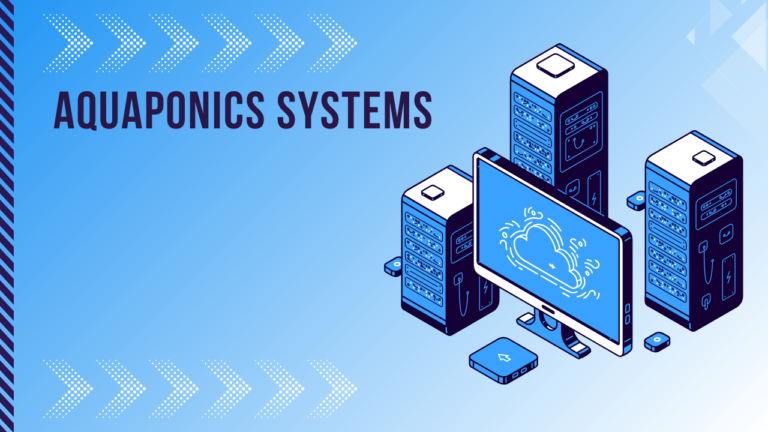Solar-Powered Heating Systems for Urban Residences: Embracing Sustainable Comfort
As urban areas continue to grow, the demand for sustainable and energy-efficient solutions becomes increasingly important. One of the most effective ways to enhance energy efficiency and reduce environmental impact in urban residences is through the use of solar-powered heating systems for urban residences. These systems harness the power of the sun to provide heating, reducing reliance on fossil fuels and lowering energy costs. In this comprehensive guide, we will explore the benefits, types, and implementation of solar-powered heating systems, offering valuable insights for homeowners looking to embrace sustainable comfort.
The Importance of Solar-Powered Heating Systems for Urban Residences
Urban environments often face unique challenges when it comes to energy consumption and environmental impact. With high population densities and extensive infrastructure, the demand for heating can be substantial. Traditional heating systems, such as gas or electric heaters, contribute to greenhouse gas emissions and deplete non-renewable resources. Solar-powered heating systems for urban residences offer a sustainable alternative by utilizing renewable solar energy to provide warmth. These systems not only reduce carbon footprints but also provide long-term cost savings and contribute to a more sustainable urban lifestyle.
Types of Solar-Powered Heating Systems for Urban Residences
1. Solar Thermal Collectors
Solar thermal collectors are one of the most common solar-powered heating systems for urban residences. These systems consist of panels that capture and convert sunlight into thermal energy. The collected heat is then transferred to a fluid, which is circulated through pipes to provide heating for water or air. There are two main types of solar thermal collectors: flat-plate collectors and evacuated tube collectors. Flat-plate collectors are commonly used in residential settings due to their efficiency and cost-effectiveness, while evacuated tube collectors are ideal for colder climates and high-temperature applications.
2. Solar Water Heating Systems
Solar water heating systems use solar thermal collectors to heat water for domestic use, such as bathing, cooking, and cleaning. These systems are typically installed on rooftops and can be either active or passive. Active systems use pumps to circulate water or antifreeze through the collectors, while passive systems rely on natural convection to move the heated fluid. Solar-powered heating systems for urban residences that focus on water heating can significantly reduce energy consumption and utility bills, making them an attractive option for many homeowners.
3. Solar Air Heating Systems
Solar air heating systems are designed to heat the air in a building using solar energy. These systems use solar collectors to capture and convert sunlight into warm air, which is then distributed throughout the residence using a fan or duct system. Solar air heaters are particularly effective in temperate and cold climates where additional heating is needed. By integrating solar air heating into urban residences, homeowners can reduce their reliance on conventional heating methods and achieve a more sustainable living environment.
4. Solar-Powered Heat Pumps
Solar-powered heat pumps combine the technology of traditional heat pumps with solar energy to enhance efficiency and reduce energy consumption. These systems use solar panels to generate electricity, which powers the heat pump to provide heating and cooling for the home. Solar-powered heat pumps offer a versatile solution for urban residences, as they can be used for both space heating and cooling. By integrating solar power into the heat pump system, homeowners can reduce their reliance on grid electricity and lower their overall energy costs.
5. Hybrid Solar Heating Systems
Hybrid solar heating systems combine solar technology with conventional heating methods to provide a comprehensive solution for urban residences. These systems use solar thermal collectors to provide supplemental heating, while a backup heating source, such as a gas or electric heater, handles periods of high demand or low solar availability. Hybrid systems offer the benefits of solar-powered heating systems for urban residences while ensuring reliable performance and comfort throughout the year.
Benefits of Solar-Powered Heating Systems for Urban Residences
1. Environmental Sustainability
The primary benefit of solar-powered heating systems for urban residences is their contribution to environmental sustainability. By utilizing renewable solar energy, these systems reduce the reliance on fossil fuels and decrease greenhouse gas emissions. This not only helps combat climate change but also promotes cleaner air and a healthier urban environment.
2. Cost Savings
Solar-powered heating systems can lead to significant cost savings on energy bills. While the initial investment in solar technology may be higher, the long-term savings from reduced energy consumption can offset the costs. Additionally, many governments offer incentives, rebates, or tax credits for installing solar systems, which can further reduce the financial burden.
3. Energy Independence
By harnessing the power of the sun, homeowners can achieve a higher level of energy independence. Solar-powered heating systems reduce reliance on grid electricity and fossil fuels, providing a more self-sufficient and resilient energy solution. This is particularly valuable in urban areas where power outages or supply disruptions can have significant impacts.
4. Increased Property Value
Homes equipped with solar-powered heating systems for urban residences often see an increase in property value. As sustainability and energy efficiency become more desirable features, homes with solar heating systems are more attractive to potential buyers. This can lead to a higher resale value and a more competitive position in the real estate market.
5. Low Maintenance Requirements
Solar-powered heating systems generally have low maintenance requirements compared to traditional heating systems. Once installed, these systems require minimal upkeep, with occasional checks and cleaning of the solar collectors. This makes them a convenient and hassle-free option for homeowners looking to invest in long-term sustainability.
Challenges of Solar-Powered Heating Systems
1. High Initial Costs
One of the main challenges of solar-powered heating systems for urban residences is the high initial cost of installation. Solar panels, collectors, and associated components can be expensive, and the financial investment may be a barrier for some homeowners. However, the long-term savings and available incentives can help offset these costs over time.
2. Limited Solar Exposure
In urban environments, buildings may be surrounded by taller structures or shaded areas that limit the exposure of solar collectors to direct sunlight. This can affect the efficiency and performance of solar heating systems. Careful site assessment and system design are necessary to maximize solar exposure and ensure optimal performance.
3. Variable Performance
The performance of solar-powered heating systems can be variable depending on factors such as weather conditions, seasonal changes, and geographic location. While these systems can provide substantial benefits, they may not always meet heating needs during periods of low sunlight or extreme weather. Hybrid systems or backup heating sources can help address these performance challenges.
4. Aesthetic Considerations
Some homeowners may be concerned about the appearance of solar panels or collectors on their property. In urban environments where aesthetics are important, the installation of solar heating systems may require careful planning to ensure that the systems are visually unobtrusive and blend well with the building\’s design.
5. Installation Complexity
The installation of solar-powered heating systems can be complex and may require professional expertise. Proper installation is crucial for ensuring the system\’s efficiency, safety, and longevity. Homeowners should work with qualified professionals to ensure that the system is installed correctly and performs optimally.
Subheading: How to Choose the Right Solar-Powered Heating System for Urban Residences
1. Assess Your Heating Needs
When selecting a solar-powered heating system for urban residences, it\’s important to assess your specific heating needs. Consider factors such as the size of your home, the local climate, and your current heating system. This will help determine the most suitable solar heating solution for your situation.
2. Evaluate Solar Exposure
Evaluate the solar exposure of your property to determine the feasibility of solar heating. Consider factors such as shading from nearby buildings, roof orientation, and available space for solar collectors. A professional solar assessment can help identify the best placement for solar equipment and ensure optimal performance.
3. Consider System Type
Choose the type of solar-powered heating system that best fits your needs and budget. Options include solar thermal collectors, solar water heating systems, solar air heating systems, solar-powered heat pumps, and hybrid systems. Each type has its own advantages and considerations, so it\’s important to select a system that aligns with your goals and preferences.
4. Review Costs and Incentives
Review the costs associated with installing a solar-powered heating system and explore available incentives, rebates, or tax credits. These financial incentives can help reduce the initial investment and make solar heating more affordable. Additionally, consider the long-term savings on energy bills when evaluating the overall cost.
5. Work with Experienced Professionals
Work with experienced professionals to design and install your solar-powered heating system. Qualified contractors can provide valuable expertise, ensure proper installation, and help you navigate any regulatory or permitting requirements. Choosing a reputable installer will contribute to the success and longevity of your solar heating system.
Final Thoughts on Solar-Powered Heating Systems for Urban Residences
Solar-powered heating systems for urban residences offer a compelling solution for reducing energy consumption and enhancing sustainability in urban environments. By harnessing the power of the sun, these systems provide an environmentally friendly alternative to traditional heating methods, offering long-term cost savings, energy independence, and increased property value. While there are challenges to consider, such as initial costs and limited solar exposure, the benefits of solar heating make it a worthwhile investment for many homeowners. With careful planning and professional installation, solar-powered heating systems can contribute to a more sustainable and comfortable urban lifestyle.
FAQs
1. What are the main types of solar-powered heating systems? The main types include solar thermal collectors, solar water heating systems, solar air heating systems, solar-powered heat pumps, and hybrid solar heating systems.
2. How much can I save on energy bills with a solar-powered heating system? Savings vary depending on factors such as system type, installation costs, and local energy prices. However, many homeowners experience significant reductions in energy bills with solar-powered heating systems.



